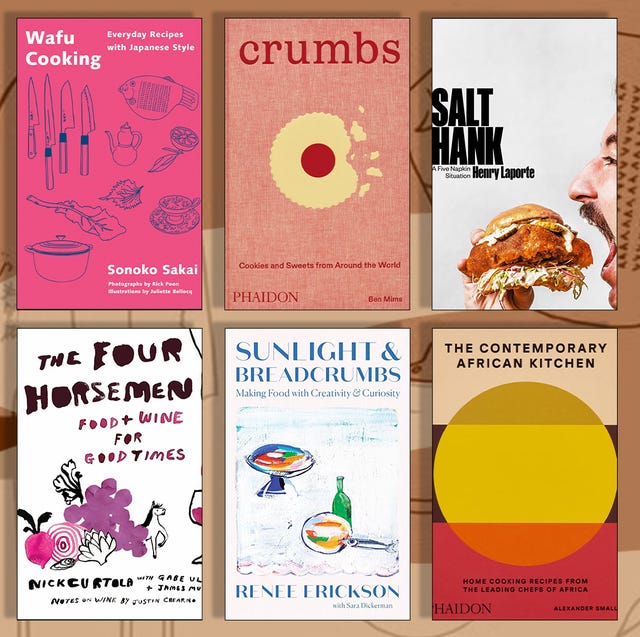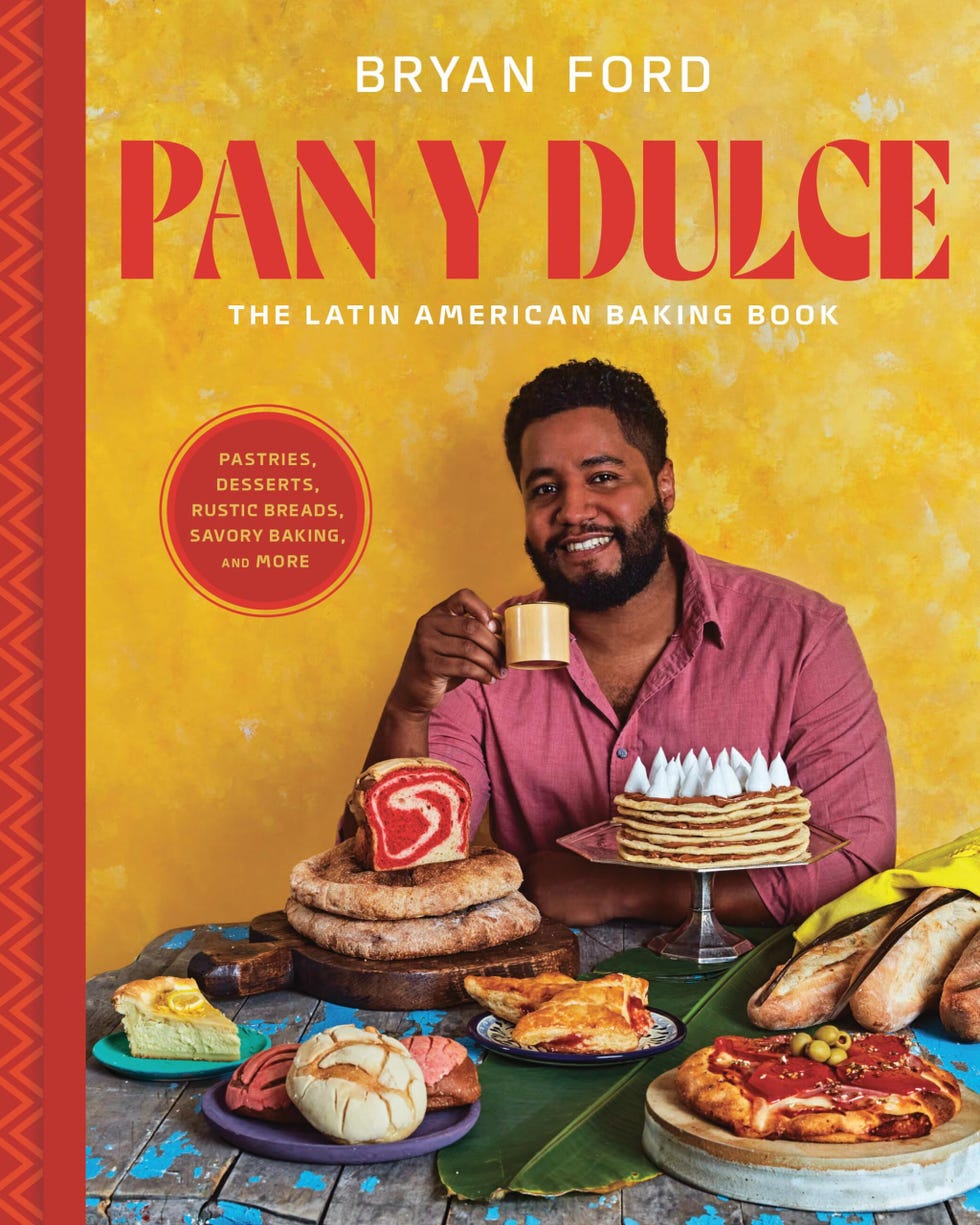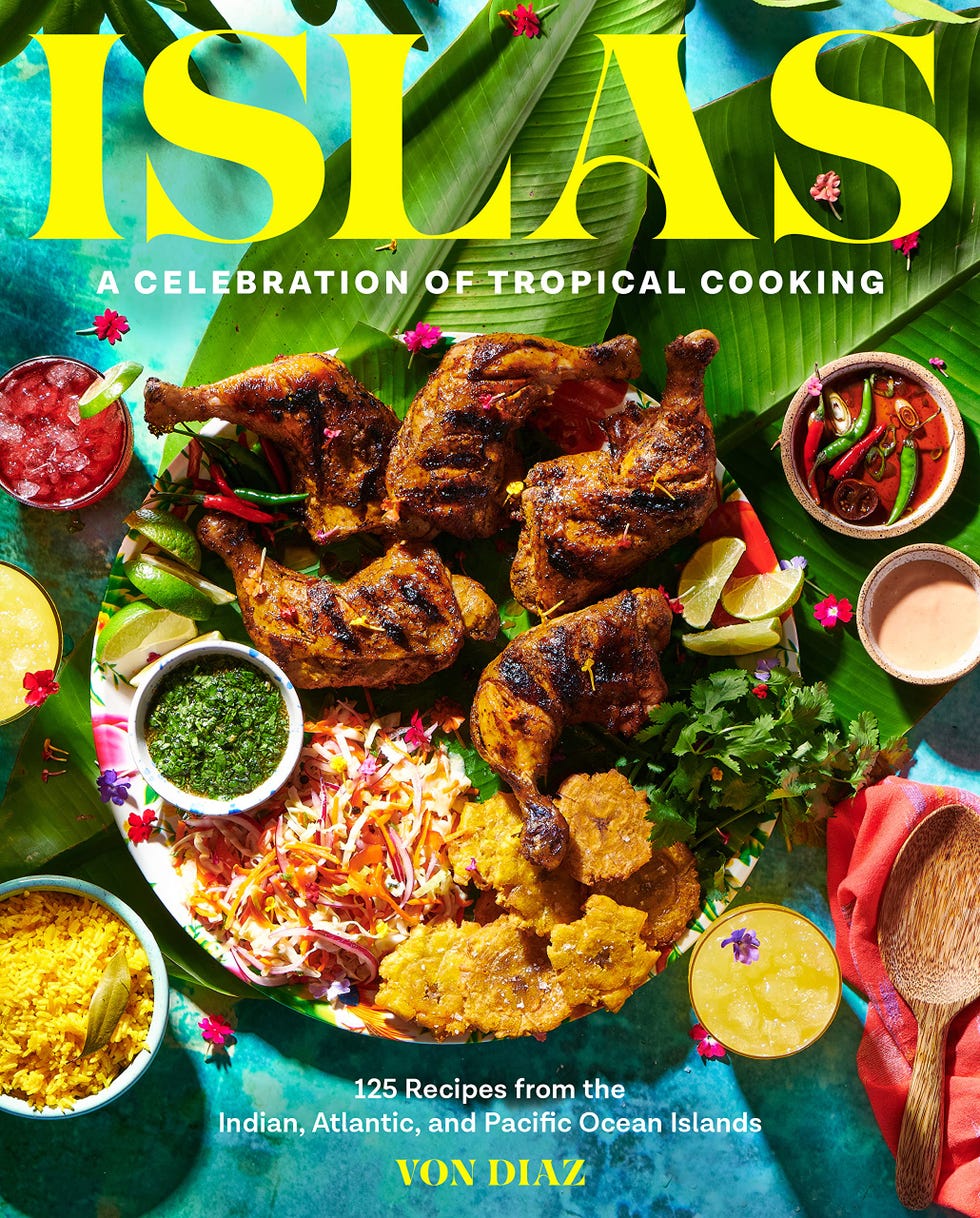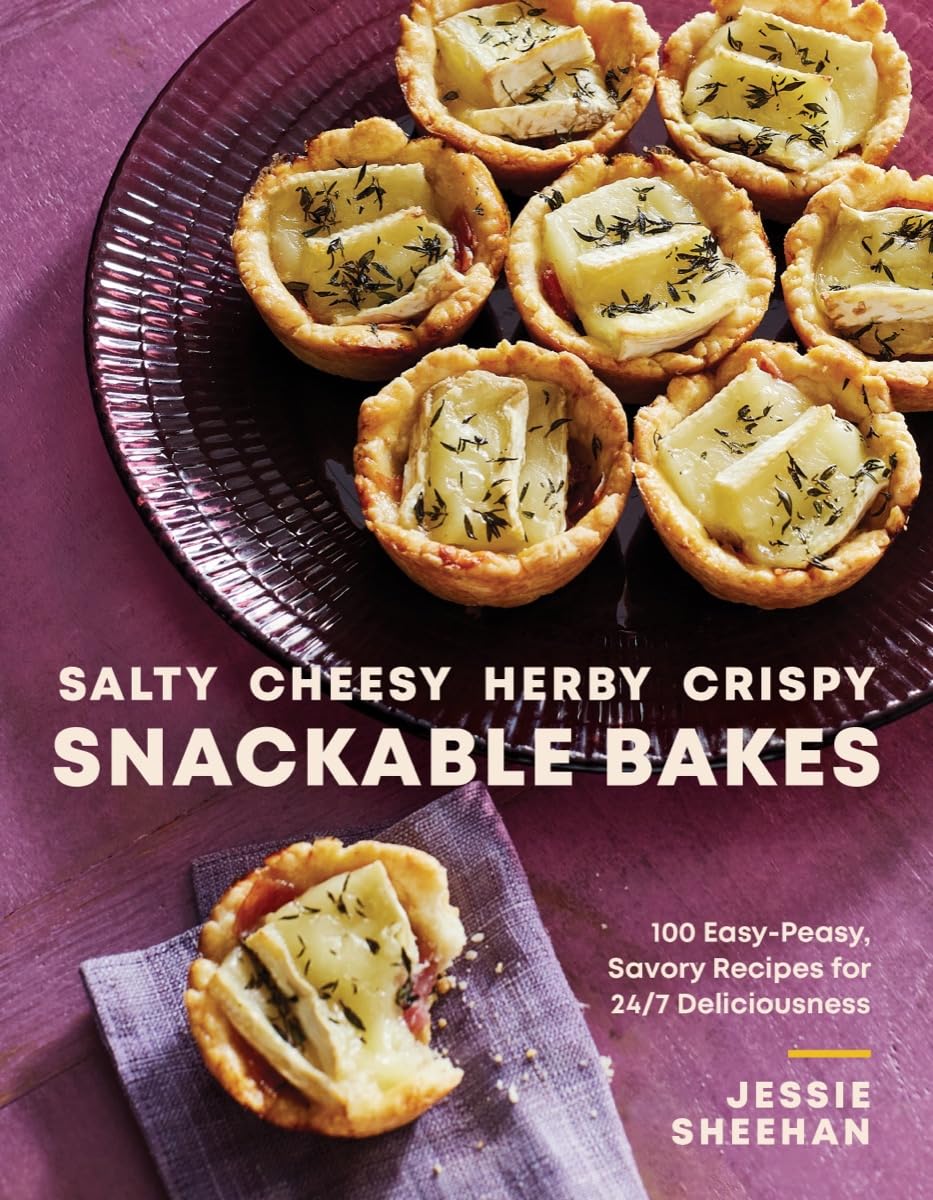
Every product was carefully curated by an Esquire editor. We may earn a commission from these links. Here’s how we test products and why you should trust us.

Our favorites bring you nourishing recipes from the South of France, the Caribbean islands, and many more culinary destinations.
By Alex BelthOne of the compelling (if elusive) qualities of cookbooks is that they don’t all have the same intention. Aside, of course, from providing clear recipes you can make at home. Otherwise, the genre is wide-open, and every cookbook lover is drawn to different approaches.
Cookbooks are often travelogues—true cultural deep dives full of reportage. Some have the intimacy of the finest family memoirs. And then there is the food. Some recipes are presented with minimal fuss and explanation—not out of laziness but because the author trusts that the reader knows their way around a kitchen—while others, in the tradition of Cook’s Illustrated, are thorough and detailed, aimed at the kind of cook who likes to be led step-by-step through a dish (not to mention the science and experimentation behind it). Some books are illustrated, giving them an even more personal touch; others sparkle with bold photography. The medium is a rich playground for art directors, who bring their creative talents to the fore.
This year saw a bumper crop of new titles, fromLe Sud, a sumptuous foray into the cuisine of southern France, to Islas, Von Diaz’s wondrous exploration of the food cultures of various islands, from Puerto Rico to Guam. Grand masters such as Joan Nathan, Tom Colicchio and José Andrés have inviting new offerings, and there is endless fun to be had in new titles by Sonoko Sakai, Jess Damuck, and Dan Pashman. In these books, and others, you’ll learn a good deal more about the world at large and come away with recipes that are as nourishing as they are delicious.
And so, in no particular order, our favorites.
 Now 26% Off
Now 26% OffBefore Renee Erickson became one of the top chefs in the Pacific Northwest (with beloved Seattle restaurants such as Bateau, the Whale Wins, and the Walrus & the Carpenter), she was a painter, having majored in art at the University of Washington. After a quarter century in the food business, though, Erickson sensed that she’d lost touch with the pleasures of creativity and cooking. This honey of a book reminds us that cooking, even the routine kind, has a touch of art. Or at least improvisation. “An adage suggests that you don’t try cooking a dish for the first time with guests coming over,” Erickson writes in a chapter about Sunday dinners, “but I do it all the time. I say if you have the correct sort of guests … you should go ahead and try something new for them. Don’t pretend you know exactly what you’re doing: Let them in on your process.”
 Now 20% Off
Now 20% OffThis is a landmark book. Alexander Smalls, the trailblazing restaurateur behind New York spots such as the Cecil and Café Beulah, enlists chefs from across the African continent to showcase some of their favorite regional dishes. There are 120 recipes. They’re designed for the home chef, and most of the recipes—such as a salsa from Kenya or candied sweet potatoes from Zambia—are easy to make. (The goat-and-chicken-gizzards pithivier from Angola? More challenging.) I’ve tried and loved the okra stew from South Africa, the insanely tasty tomato-and-stone-fruit salad with jollof vinaigrette from Ghana, and the peanut-sauce stew from the Republic of the Congo.
 Now 10% Off
Now 10% OffOpened in 2015 by LCD Soundsystem frontman James Murphy, with partners Christina Teng Topsøe (his wife), Randy Moon, and wine savant Justin Chearno, the Four Horsemen soon established itself as one of the most influential wine bars on the planet. (Chearno’s untimely death this past summer still has colleagues in shock.) Eating and drinking there is about being thereand basking in the place’s curation of wine and music and the art of the vibe, but if you can’t be there, this cookbook serves as a lovely artifact. The menu at the Four Horsemen has never been a pretentious one, so it makes sense that chef Nick Curtola’s recipes easily segue into the home kitchen. You’ll find salads such as romaine hearts with daikon radish and mint, and main dishes like a fantastic poached chicken with jasmine rice and green garlic broth. (Personally, I want the butterscotch budino with whipped cream and hazelnuts all the time.) Yet this volume gives us something deeper, charting the history of the place—its founding, architectural plans, renovations, menu development—and conveying how hard, how infinitely hard, it can be to build and operate a restaurant of this caliber.
 Now 20% Off
Now 20% OffLet’s get to some sweets. It doesn’t need to be the holidays—or any special occasion—to make cookies. What Ben Mims, a veteran of publications such as Lucky Peachand Food & Wineand the Los Angeles Times, has given us is a massive survey of cookies from around the world. The book is immense yet not daunting—there is a lot of white space on the page—and it offers a fascinating glimpse into how the world eats these simple treats, to be savored with or without a beverage. There’s gevulde koeken, almond-paste-stuffed butter cookies from the Netherlands; maamoul, nut-filled shortbread cookies from the Middle East; and biskut gajus, milky cashew cookies from Malaysia.
![Mastering the Art of Plant-Based Cooking: Vegan Recipes, Tips, and Techniques [A Cookbook] Mastering the Art of Plant-Based Cooking: Vegan Recipes, Tips, and Techniques [A Cookbook]](https://hips.hearstapps.com/vader-prod.s3.amazonaws.com/1734455413-81XPMiwBzxL.jpg?crop=1xw:1xh;center,top&resize=980:*) Now 29% Off
Now 29% OffWe saw a flurry of excellent vegetable-forward titles this year—including The Vibrant Hong Kong Table. One thing’s clear: Healthy eating doesn’t have to mean a lousy culinary experience. But what makes this different from the 8,000 other vegetarian and vegan cookbooks? Scope. It is a compendium of global recipes edited by Joe Yonan, who in his role as the food and dining editor at TheWashington Posthas encountered many overlapping strains of plant-based cooking: “hippie, post-punk, and cutting edge. I see comfort, wellness, natural and whole foods, African diasporic, Middle Eastern,” and on throughout the rest of the globe. Yonan’s aim is to help “codify plant-based cooking as not a lifestyle, not a philosophy, but … a cuisine.” With that in mind, he has delivered a colossal volume, crammed with one banging recipe after another, including crispy fried tofu nuggets with ranch dressing and a beet ceviche made with dried seaweed stock.
 Now 32% Off
Now 32% OffOkay, let’s get this out of the way: This is not for the novice or someone looking for snappy, super-easy recipes. This book is for the sophisticated baker. The first 115 pages represent a baking primer on everything from yeast and ferments to emulsions and coagulation—and that’s before we even get to the recipes. Lamb, a London-based writer who trained with Dominique Ansel and Yotam Ottolenghi, might seem intimidatingly meticulous at first, even to confident bakers. (She turns banana pudding into layered cake.) Take the leap, though, and you’ll find a gorgeous salted-vanilla-and-pistachio layer cake with lemon syrup (which I can’t stop thinking about), as well as a baked lemon-custard brûlée, a wonderful marriage of caramel and citrus. Lamb inspires readers to step up and try them all. I’m game.
![Wafu Cooking: Everyday Recipes with Japanese Style [A Cookbook] Wafu Cooking: Everyday Recipes with Japanese Style [A Cookbook]](https://hips.hearstapps.com/vader-prod.s3.amazonaws.com/1734455333-71Z3T7CfE9L.jpg?crop=1xw:1xh;center,top&resize=980:*) Now 34% Off
Now 34% OffAfter a career in show business as a film buyer and producer, Sakai began giving cooking classes and developed a loyal following. It’s easy to see why. She’s plainspoken and unguarded, and her quiet enthusiasm is infectious. In her new book, Sakai is a bona fide mash-up artist—Kirby Ferguson would approve. Wafucan be translated loosely as “in Japanese style,” and it has to do with the way a Japanese approach to cooking adapts, in different places, to suit local tastes. Sakai uses it as a verb. If you want to wafu a sauce, maybe you add a tablespoon of miso to Bolognese, as she does. In this book, she uses the wafu approach to non-Japanese dishes, so we’re treated to a mind-bending twist on apple pie—a slab pie variation that’s wafu’d with miso plus an ornate way of arranging the crust.
![My Egypt: Cooking from My Roots [A Cookbook] My Egypt: Cooking from My Roots [A Cookbook]](https://hips.hearstapps.com/vader-prod.s3.amazonaws.com/1734455284-91CJff7A0iL.jpg?crop=1xw:1xh;center,top&resize=980:*) Now 29% Off
Now 29% OffThis book makes me want to travel to Egypt. It opens with a series of photographic spreads that hit you at a visceral level. It’s not just the sun-soaked locales that stay with you but the faces—of fishermen, bakers, butchers—that bring the culture to life. The book comes from Michael Mina, the acclaimed chef and restaurateur who owns more than 40 restaurants worldwide. Interestingly, Mina, who was born in Cairo, didn’t often dip into his Egyptian culinary heritage on the public stage until the past decade. In a thoughtful introduction, he recalls family gatherings, 40 strong, with an aching amount of offerings—dips, spreads, dried fruits, nuts, stuffed grape leaves. “That’s what it was all about,” he writes. “Food on the table, all day long, all of us spending time together. People would cry, fight, laugh, joke, all in the same day, dramatic scenes that ended in hugs and plans for the next barbecue.” There’s plenty of seafood and grilled meat in this book—“In Egypt, smoky char acts as seasoning for grilled kofta and poultry,” Mina explains. But I’m especially impressed by the subtle pleasure of dishes such as okra with shallots and chile; pumpkin-and-red-lentil soup; lemon potatoes; and lime popsicles with mint and white peach.
 Now 15% Off
Now 15% OffThis frank and funny book—cowritten by Esquire contributor Joshua David Stein—represents a pleasing hybrid from the Top Chefmajordomo, blending memoir with irresistible recipes. Colicchio takes us along through his professional career, including his early days at the Quilted Giraffe and Gramercy Tavern, and spins a tale of aspiration and hustle. The recipes, organized by season, burrow into home cooking. There are roast chickens and salads and stews; there’s Sunday gravy with meatballs as well as a gluten-free eggplant parm. Why I Cooklacks pretension, but it’s full of surprises.
 Now 25% Off
Now 25% OffBeen looking for a book on Latin American desserts? Well, it’s been a good year. Bodega Bakesby Paola Velez is charming and inventive, and now we have Pan y Dulce—a world of bread and sweetness—by Miami-based baker Bryan Ford, a social-media fixture who has appeared as a judge on Blue Ribbon Baking Championship and Best in Dough. Ford is known for soft sandwich rolls and artisan-style loaves, but this book includes variations such as fugazzeta, an Argentinian flatbread. (I loved the Brazilian bombocado, a crumbly egg-custard tart linked to Portugal’s famous pasteis de nata.) Ford writes in a friendly manner, educating us while keeping us entertained.

 Now 40% Off
Now 40% OffLately the cookbook genre has been littered with authors who come to us from the social-media space. We’re not talking about traditionally successful foodies with big followings on Instagram but rather folks whose stars have risen through their social-media platforms. Among that bunch is Henry Laporte, who’s been bringing us to our knees with his hellacious, mouthwatering sandwich creations and easy, amiable charm. His first book, Salt Hank, ventures beyond sandwiches with comic-book bigness (aided greatly by Ed Anderson’s vibrant photography and Laura Palese’s clean art design). From walking tacos to steak tartare to bang bang shrimp tacos, this is bold, aggressive fare. Accompanied by plenty of photos of a mustachioed, smiling Laporte, the book is a vibe. And don’t worry, it’s got sandwiches: spicy vodka parm, hot cod, and a French dip to die for. Forget the lobster bib—bring a tarp.
 Now 27% Off
Now 27% OffIn their follow-up to 2016’s stellar Koreatown, Deuki Hong and Matt Rodbard cover the revolution of Korean cuisine in America. Accompanied by Alex Lau’s vivid photography, the recipes come from chefs and home cooks across the country. Koreaworldis a dizzying visual treat sure to make your mouth water. Yes, the Kim Jong Grillin’ pickled-mango-and-kimchi hot dogs are incredible, and yes, the oi muchim sweet-and-sour pickled cucumbers (with 7-Up!) are addictive. But beyond a slew of intriguing dishes, it’s the stories that give this volume its emotional lift and depth.
 Now 36% Off
Now 36% OffThere really is a different feeling you get from a matte finish versus a glossy finish in a cookbook. In Greekish, the bright, airy quality of the design and the crisp nature of the photography are enhanced by the book’s matte paper. The result is a clean, inviting presentation of Georgina Hayden’s delectable recipes. This is another cookbook where I just got lost in reading each recipe, thanks to Hayden’s terse, entertaining introductions. I didn’t know I liked Greek food this much! But mum’s sliced potatoes? Simple but fancy looking, and super tasty. Pumpkin and feta katafi pie; braised sausage, lentils, and fennel; or golden fish soup? Bring ’em on. Greekish is for anyone and everyone: perfect for those who already love Greek cuisine or a lovely introduction for those just starting out.

 Now 28% Off
Now 28% OffGorgeous and formidable, while not in the least bit intimidating or stuffy, Rosa Jackson’s exploration of food and cooking in Nice is not only one of the best cookbooks of 2024, but it’s bound to have a place in your library for years to come. Jackson, who teaches cooking classes in Nice, takes us beyond the region’s most well-traveled dishes, like salad Niçoise and ratatouille, to showcase lesser-known triumphs like coca trita, a lovely tomato-, pepper-, and onion-filled turnover; olive-and-artichoke risotto with crisp pancetta; and seared scallops with Belgian endives caramelized with orange and honey. I’m leaving room after dinner for the classic rustic plum tart—one of many fine desserts you’ll find here. Another thing to love: Jackson is a real writer, and her prose and storytelling are top-notch. This stunner of a book is timeless.
 Now 35% Off
Now 35% OffCan a cookbook open your mind and spirit to cultures you may not have authentically appreciated yet still make you want to try every recipe it offers? Von Diaz’s latest achieves just that, as she writes about not one but several island cuisines and cultures, including those of Puerto Rico, Madagascar, Guam, and Vanuatu. Islasis a mash-up of cultures both distinct and connected, and this book, thoughtfully written with approachable, clear-to-follow recipes, is a delight and wonder. Seriously, I’ve stopped earmarking pages. I’ve never been inclined to Julie & Juliaa book until now. I just want to make everything. Irresistible.
 Now 38% Off
Now 38% OffFor close to two decades, Alexandra Stafford has been a fixture in the food blogosphere, offering us beautifully photographed, approachable recipes that are a cut above. Devoted to making pizza at home, Stafford’s second cookbook continues to showcase her knack for presenting us with unpretentious food that’s surprising, comforting, and fun. The recipes are carefully considered, nothing fussy. Just a trove of invention and enjoyment for anyone with a hankering for pizza.

 Now 38% Off
Now 38% OffI love everything about this book, starting with the cover. The bright pink and turquoise are appealing, and the images and typeface are also embossed, giving the book tactile appeal. What do they say—mouthfeel? Well, this is hand feel. The book feels good. Inside, we find Shu Han Lee’s straightforward dive into the food of Singapore. A few personal and family photographs are interspersed throughout, and while Lee briefly details what led her to cooking, the majority of the book is concerned not with historical or personal digressions but with recipes. Also the philosophy of cooking with your senses. The term “agak agak” roughly translates to “estimate,” which is not to say that the recipes are haphazard or confusing. But I do want chicken braised in tamarind and coriander, and also Tamil egg curry and Nonya lemongrass chicken. This gem of a book is extremely well realized.

![The Bean Book: 100 Recipes for Cooking with All Kinds of Beans, from the Rancho Gordo Kitchen [A Cookbook] The Bean Book: 100 Recipes for Cooking with All Kinds of Beans, from the Rancho Gordo Kitchen [A Cookbook]](https://hips.hearstapps.com/vader-prod.s3.amazonaws.com/1725979040-91rUlT63GiL.jpg?crop=1xw:1xh;center,top&resize=980:*) Now 10% Off
Now 10% OffIf you’re looking for a protein-rich, flavor-packed rabbit hole to dive down, please consider the world of heirloom beans. Yeah, it takes a little effort—tracking down heirloom varieties and then soaking the beans ahead of cooking—but once you’re hooked, these are small matters. Steve Sando has been growing heirloom beans in California for 20 years, and products from his company, Rancho Gordo, can be found in California’s finest restaurants. In his unprepossessing introduction, Sando writes, “I believe that when you cook beans, you’re connecting with thousands of years of tradition.” Here he gives us 50 varieties of heirlooms: marbled beauties like Moro and Jacob’s Cattle and opaque gems like King City Pink and Mayocoba. He advises readers on how to turn them into stews, soups—the broth these beans produce!—salads, dips, burgers, and more. You’ll find the classics such as New England baked beans (both traditional and vegan versions) and Italian pasta e fagioli, but also surprises like heirloom-bean-and-caramelized-fennel gratin and Smitten Kitchen’s pizza beans. You’ll use this handsome book as both reference guide and inspiration.

 Now 30% Off
Now 30% OffAnother fine introduction to a national cuisine comes to us from Mallika Kauppinen, complete with personal history, a guide to tools and equipment, and a crash course in how to shop for Thai ingredients. The recipes cover staples such as salads (som tum), noodles (khao soi), curries (panang, massaman), and desserts (mango sticky rice). Every single one is approachable, easy to follow, and delicious. What sets this cookbook apart is that it is also a graphic novel; Christina De Witte’s witty, clean illustrative style helps make it memorable. It’s probably a tough sell to anyone who has difficulty with comics, but for those you know who love the form, this is a winner.

 Now 14% Off
Now 14% OffOne hundred percent drool-fest. I don’t know that I’ve ever thought about snackable bakes—but why the hell not? This is Jessie Sheehan’s fourth book—the third, Snackable Bakes, concentrated on sweets. If you haven’t seen her videos on social media, Sheehan is genial company. This time around, she’s back in our business with savory bakes, including sour-cherry-goat-cheese-and-rosemary danish, hot honey-butter-glazed cornbread, chorizo-manchego-and-date scones, and more. This is one of those books where eventually you shrug and surrender. Fine! You win! I’ll try every recipe.
2024-12-23 01:23
2024-12-23 01:07
2024-12-23 00:39
2024-12-23 00:07
2024-12-22 23:21
copyright © 2023 powered by News Orbit sitemap